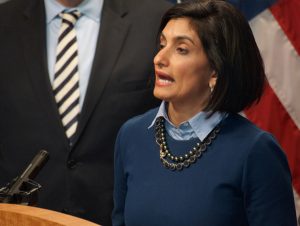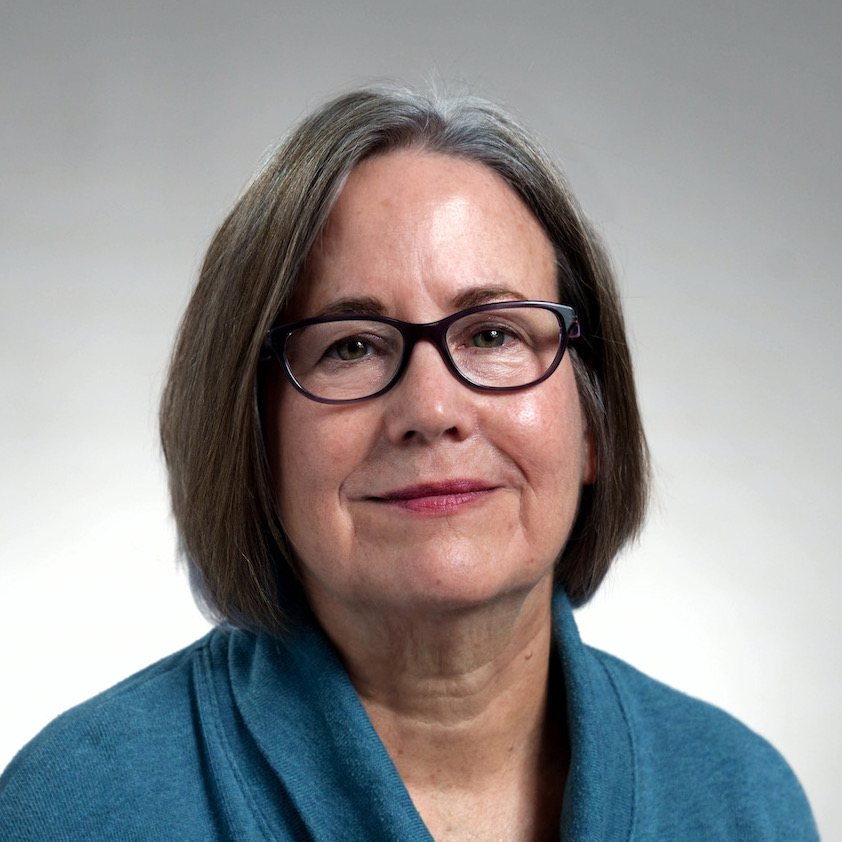
The Centers for Medicare & Medicaid Services threatened to ban a reporter from participating in the federal agency’s telephone news conferences after he refused to delete three sentences from a published story that apparently had rankled CMS Administrator Seema Verma.
The reporter — Virgil Dickson, Washington bureau chief for Modern Healthcare — believed the agency was making good on its threat on Thursday when, he said, his phone went mute during a CMS press call and a woman’s voice told him he was not allowed to participate. An editor later confirmed with CMS officials that he had been banned from press calls, Dickson said.
But after the Association of Health Care Journalists sent CMS several questions about the incident, an agency spokesman on Saturday evening emailed a one-sentence reply: “No reporters have been banned by CMS.” He did not explain why Dickson was ejected from Thursday’s call.
Dickson said he has received no communication from CMS assuring him of future access. Even if he is allowed to participate in future CMS press calls — already typically restricted to a handful of reporters — the attempt to alter a story by threatening to cut off access raises deep concerns among journalists.

“Administrator Verma seems to think she can bury inconvenient facts by threatening reporters with blacklisting,” said Ivan Oransky, M.D., president of the Association of Health Care Journalists, the world’s largest organization of reporters, editors, and producers covering health care.
“That tactic won’t work – truth will out,” Oransky said. “But the very act of trying to stifle a press report is a frightening assault on the First Amendment. AHCJ intends to vigorously protest this bullying.”
Reporting on a resignation

At issue was Dickson’s Jan. 23 story about the abrupt resignation of Brian Neale, an official who oversaw Medicaid and helped move it in more conservative direction.
After providing statements from Verma and Neale, Dickson quoted “industry insiders” who said the departure was prompted by “some sort of disagreement between Verma and Neale that erupted in the past few days.” He also mentioned that one source said Neale had been concerned about the workload. This information appeared more than halfway through the story.
After the article appeared, Dickson received an email from Brett O’Donnell, a communications contractor working for CMS. O’Donnell called reports of a disagreement or workload problems “false speculation” and said it was “irresponsible” to mention them without more details.
Dickson stood his ground, noting that the information came from multiple, reliable sources. But he agreed to speak with Neale for clarification, and subsequently added Neale’s denial of a disagreement.
The next day, O’Donnell wrote to Dickson’s editor, Matthew Weinstock, asserting that the article was inaccurate and demanding that the references to workload and the disagreement be excised. O’Donnell’s email also stated: “Short of fully correcting the piece we will not be able to include your outlet in further press calls with CMS.”
Weinstock replied that a correction was not necessary, because the information came from credible sources and was balanced with Neale’s denial and other officials’ comments.
Just over a week later, on Feb. 1, Dickson was removed from the CMS press call.
Dickson, who has been covering health care in D.C. for eight years, four and a half of them for Modern Healthcare, said he’d never before been shut out of press calls.

Aurora Aguilar, editor-in-chief of Modern Healthcare, told AHCJ that the incident is unlike anything she has seen in more than 20 years in journalism.
“I don’t think I’ve ever come across a situation where I was asked to remove something from a story in a way that felt like censorship,” she said.
Aguilar said Dickson is known as a thorough and fair reporter. Modern Healthcare, whose subscribers are chiefly executives from health care systems and insurance companies, publishes articles about CMS once or twice a day. “We need to continue to be informing our audience about what’s going on,” she said.
Dickson and his editors reached out to Verma but received no response. Aguilar said that on Friday she placed five phone calls and sent an email to Charmaine Yoest, who heads media affairs at the Department of Health and Human Services, and also received no response. Update: Aguilar said that Yoest got back to her on Sunday, promising to have a response by the end of the day Monday.
Role of a consultant
O’Donnell, the consultant who threatened to blackball Modern Healthcare, is not a member of the media affairs offices for CMS or for HHS.
He is a Republican strategist who has helped GOP candidates in their political campaigns. In 2015, O’Donnell pleaded guilty to lying to U.S. House ethics investigators about how much campaign work he did with money that came from office accounts rather campaign accounts.
O’Donnell, reached by email, declined to answer questions from AHCJ.
Kimberly Leonard, co-chair of AHCJ’s D.C. chapter, said the incident involving Dickson comes amid a wider pattern of barriers to access at CMS, an agency that oversees the health care of more than 130 million Americans.
In contrast to previous administrations, CMS officials do not hold in-person press conferences. They have also taken to inviting select reporters to telephone briefings, and excluding others without explanation.

Leonard also questioned how barring a Modern Healthcare reporter from press calls benefits the agency. “Modern Healthcare’s readers include some of the most influential leaders in the health care industry,” she said in an email. “Putting aside the grave ethical transgressions here, members of the administration need to realize that they are also hurting themselves through these actions. These calls are an important avenue for them to present their reasons for implementing particular policies.”
Note: Dickson provided the emails from consultant O’Donnell to AHCJ. Some of O’Donnell’s messages stated that they were “off the record.” However, according to both common journalistic practice and the written media policy of the Department of Health and Human Services, information is “off the record” only when both parties agree.
The HHS media policy guidelines state that communications are on the record unless restrictions are “mutually agreed upon in advance.”
Dickson said he made no such agreement with O’Donnell.
Update: CMS makes amends with Modern Healthcare but questions remain




